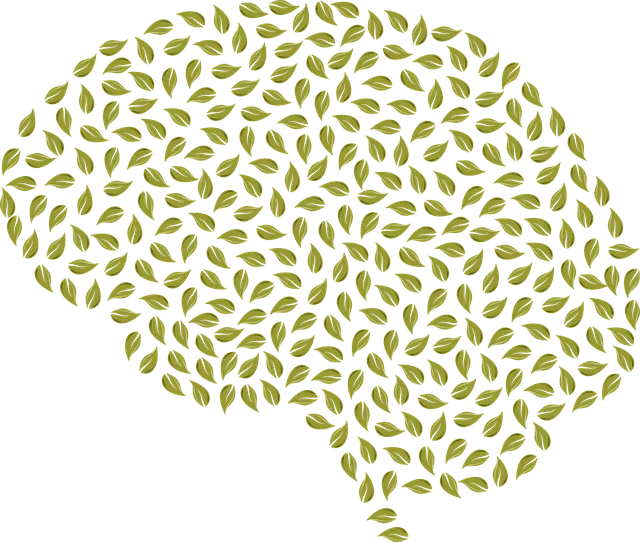Kaiser Permanente's tailored mental health services in Englewood address unique cultural challenges by offering innovative programs like a Mental Wellness Podcast Series and stress management workshops. Strategic community outreach, including social skills training and emotional well-being promotion, empowers residents and fosters resilience. Collaborative partnerships transform mental health access, prevent burnout, and drive positive outcomes measurable through data collection methods.
Community outreach programs play a vital role in fostering equitable access to healthcare services, especially in underserved areas like Englewood. This article explores how organizations, such as Kaiser Permanente, can implement successful initiatives focused on mental health support. We delve into understanding local needs, strategic implementation, building partnerships with community organizations, and measuring the impact of these programs. By examining these aspects, we aim to highlight effective approaches to enhance mental well-being in Englewood, leveraging resources like Kaiser Permanente’s mental health services.
- Understanding Community Needs: A Foundation for Effective Outreach in Englewood
- Kaiser Permanente Mental Health Services: A Resource for the Community
- Strategies for Successful Program Implementation: Engaging and Equitable Access
- Building Partnerships: Collaborating with Local Organizations in Englewood
- Measuring Impact and Continuous Improvement: Evaluating the Success of Outreach Programs
Understanding Community Needs: A Foundation for Effective Outreach in Englewood

Englewood, a vibrant community with its unique tapestry of cultures and challenges, requires tailored outreach strategies to address diverse needs. Understanding the specific mental health landscape is paramount when implementing initiatives like Kaiser Permanente’s mental health services. The area has seen gaps in access to quality mental wellness coaching programs, highlighting the necessity for development and design that cater to the local demographic.
By incorporating Cultural Competency Training for healthcare providers, these outreach programs can effectively engage the community. This training ensures a deeper understanding of the diverse cultural backgrounds within Englewood, fostering trust and improving the delivery of Mental Health Education Programs. Tailoring these initiatives to meet the unique mental health needs of Englewood strengthens the foundation for successful engagement and long-term positive impact.
Kaiser Permanente Mental Health Services: A Resource for the Community

Kaiser Permanente Mental Health Services stands as a beacon of hope and support for the community in Englewood. This healthcare provider offers a comprehensive range of services tailored to address the unique mental health needs of residents. Beyond traditional therapy, Kaiser Permanente engages in innovative initiatives such as the Mental Wellness Podcast Series Production, which leverages modern media to promote emotional well-being promotion techniques among diverse audiences.
The organization’s commitment extends beyond clinical care, focusing on community outreach and education. They actively collaborate with local groups and individuals to implement effective stress management strategies, ensuring that mental health resources are accessible and relevant to the needs of Englewood residents. Through these efforts, Kaiser Permanente Mental Health Services not only improves individual lives but also contributes to a more resilient and thriving community overall.
Strategies for Successful Program Implementation: Engaging and Equitable Access

Implementing community outreach programs like those focused on mental health by organizations such as Kaiser Permanente in areas like Englewood requires a strategic approach to ensure engaging and equitable access. One key strategy is Social Skills Training, which can equip individuals with the necessary tools to navigate social interactions effectively, fostering a sense of belonging and reducing isolation. By offering these programs in diverse community settings and tailoring them to local needs, organizations can break down barriers and make mental health support more accessible.
Additionally, Emotional Well-being Promotion Techniques play a crucial role in enhancing the overall resilience of community members. Programs that teach mindfulness, stress management, and coping strategies not only improve individual emotional well-being but also contribute to a healthier, more supportive community environment. Initiatives targeting at-risk populations, such as youth or those experiencing homelessness, can effectively prevent issues like depression through proactive interventions and early support. This holistic approach ensures that everyone, regardless of background, has equal opportunities to access and benefit from these life-changing programs.
Building Partnerships: Collaborating with Local Organizations in Englewood

Engageville, a community facing high rates of mental health challenges, has seen transformative changes through strategic partnerships with local organizations. Kaiser Permanente, recognizing the need for holistic support, has collaborated with various entities to address the unique issues in the area. By joining forces, these partners have been able to expand access to mental health services and promote self-care practices tailored to the community’s needs.
This collaborative approach has led to the development of programs focused on burnout prevention and the implementation of self-care routine initiatives. Local organizations, in conjunction with Kaiser Permanente, are empowering residents with knowledge and resources to enhance their well-being. These partnerships demonstrate a commitment to fostering resilient communities where individuals can thrive through effective self-care practices and access to mental health support.
Measuring Impact and Continuous Improvement: Evaluating the Success of Outreach Programs

Measuring the impact of community outreach programs is essential for understanding their success and identifying areas for improvement. Organizations like Kaiser Permanente have recognized the importance of evaluating initiatives aimed at addressing mental health issues in underserved communities, such as Englewood. By assessing the outcomes and experiences of program participants, they can gauge the effectiveness of interventions designed to provide Anxiety Relief and Burnout Prevention strategies.
This process involves collecting qualitative and quantitative data through various methods like surveys, interviews, and participation rates. The feedback received from community members can highlight the positive changes brought about by these programs, including enhanced Positive Thinking and improved overall well-being. Such insights are invaluable for refining existing outreach efforts and adapting them to better serve the unique needs of the population served.
Community outreach programs, as exemplified by Kaiser Permanente’s mental health services in Englewood, thrive on understanding local needs, strategic implementation, and collaborative partnerships. By focusing on engaging and equitable access, these initiatives not only provide vital resources like mental health support but also foster a sense of community. Continuous evaluation and improvement are key to ensuring these programs remain impactful and relevant, ultimately enhancing the well-being of residents in Englewood and similar communities.






